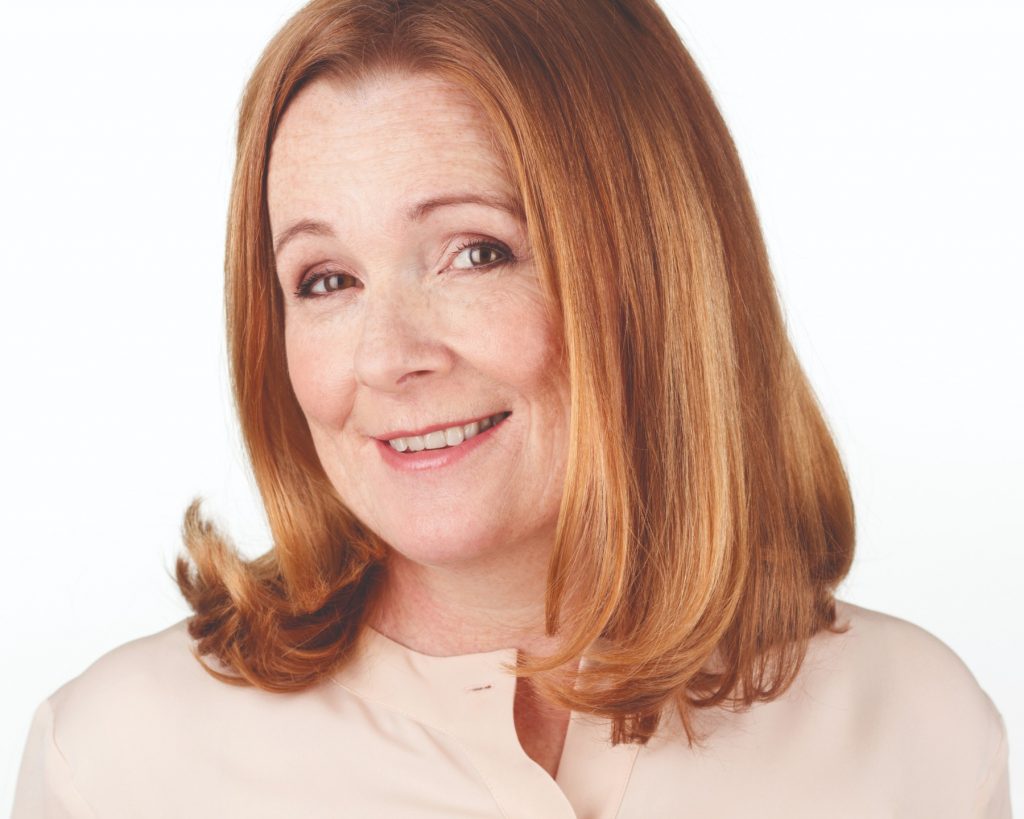Inspirational Interviews
Breast Cancer and HRT: Kirsty Lang on why she is taking HRT again

The risks of breast cancer and HRT have made many worrying headlines, causing concern and confusion for many women experiencing menopausal symptoms.
Although the latest research has revealed there are few cancer risks associated with taking HRT, for those who have already been diagnosed with breast cancer, deciding whether to take HRT is even more confusing.
BBC broadcaster and renowned journalist Kirsty Lang was diagnosed with breast cancer at the age of 53. Here, she shares the impact of that diagnosis and why she decided to start taking HRT again.
Has your lifestyle changed as you’ve aged?
I became interested in my own wellbeing as I got older. It was triggered by the fact that I was putting on weight, having always been reasonably slim, and I no longer had the energy that comes with youth. Being diagnosed with breast cancer forced me to pay more attention to my own wellbeing.
When did you first start taking HRT?
When I was about 48 or 49. I started to get terrible hot flushes, which affected my sleep. I also got very moody and would lose my temper easily or burst into tears at the drop of a hat. My mother recommended I take it. At 82 she’s incredibly fit, has great skin and is a living advert for the benefits of HRT.
Explain your breast cancer diagnosis
I was diagnosed with breast cancer at the age of 53. It was caught early through a routine NHS mammogram. It was a Grade 3 cancer, which meant it was growing fast and on the move. The shock of the diagnosis was mitigated by the fact the surgeon said straight away that I wouldn’t lose my breasts. Instead, they would perform a lumpectomy to remove the tumour.
Do you blame the HRT for your breast cancer?
The first question I put to my surgeon was, ‘Did the HRT cause it?’. His answer was, ‘No, it’s probably genetic, but you need to stop taking it now because the hormones will act like a fertiliser on the cancer cells.’
I went home and threw out all my patches and pills, which propelled me back into full-throttle menopause within two or three weeks. It was miserable.
How did you decide which treatment to have?
I heard about a new treatment called IORT (interoperative radiotherapy) developed by Professor Jayant Vaidyaat University College Hospital in London. Instead of multiple visits to a radiotherapy unit, I had one big dose of it during my operation.
They removed the cancerous growth in my breast, then beamed the radiation into the tumour bed to zap any remaining cancer cells. I left hospital that night and was back at work within a week, with no side effects.
The next decision was whether or not to have chemotherapy. Unfortunately, the cancer had jumped from my breast to one of my lymph nodes. It’s possible my immune system could clear it on its own without the need for chemo, but it was a difficult decision.
I went ahead with chemotherapy. I wore a cold cap during each treatment to freeze my head and stop my hair falling out. It was bloody painful but worth it. I lost about 40% of my hair and covered up my bald patch with a hair piece until it grew back.
What stage are you at now?
I’m now three years cancer-free. Within two weeks of my diagnosis I was prescribed a drug called letrozole, which is used to treat hormone-responsive breast cancer, but I got very stiff joints as a side-effect.
After two years I switched to tamoxifen, which suits me better. The suggested length of treatment used to be five years but recent trials suggest that 10 years offers more protection.
I get checked up by my surgeon every six months and have a mammogram every year. I’m also on a drug called Zometa, which gets infused into my veins (like chemo) every six months. It was developed to treat osteoporosis but has been shown to reduce the recurrence of breast cancer. All of these drugs are available on the NHS.
Why did you go back on HRT?
I’d been suffering with terrible hot flushes and night sweats ever since I stopped HRT. I thought they’d go away after a bit or get less intense, but they didn’t.
I assumed that because of my cancer, going back on HRT was not an option. But then I went to hear a lecture by an American oncologist called Avrum Bluming, who argued that women with breast cancer can take HRT as long as they’re on tamoxifen, which acts a block between the hormones and the cancer cells.
When I asked consultant gynaecologist Charlotte Fleming, one of the leading experts on menopause in this country, if I should take HRT, she said, ‘It’s all about your attitude to risk.’
She explains risk to her patients using a visual aid – a picture with dots on. Out of 1,000 women, 22 will get breast cancer over the course of five years. They appear as black dots on the chart. If you put them on HRT, another four or five will develop it, so that’s another five black dots on the chart. It’s an increased risk but it’s quite small.
Armed with this knowledge I went to see the amazing Dr Louise Newson, who runs the only clinic in the UK dedicated to menopause. She prescribed me estrogen gel and progesterone pills. The hot flushes haven’t disappeared completely but I get about three a day instead of 25. I’ve just started testosterone gel to improve my energy levels and cognitive function. My mood swings and anxiety have disappeared completely and I’m sleeping better.
For more information about the risks of Breast Cancer and HRT visit the NICE website or Dr Louise Newson’s www.menopausedoctor.co.uk.





